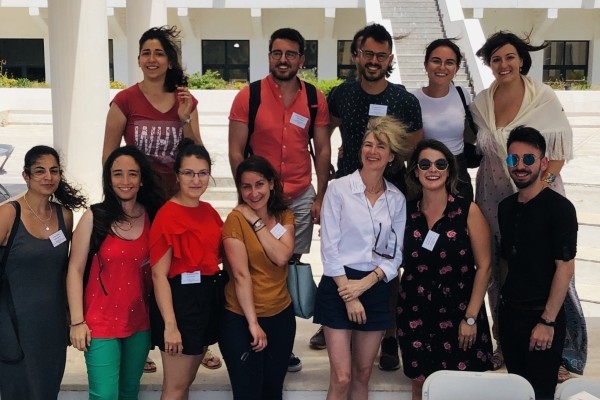Nikolaos Skenteris was accepted to attend the Onassis Foundation Science Lecture Series on “Genome Editing” organized by Onassis Foundation and Foundation for Research and Technology – Hellas (IMBB-FORTH). The central speaker was Jennifer Doudna, co-inventor with Emmanuelle Charpentier, of the CRISPR, who turned an ancient mechanism of bacterial immunity into a powerful technology with wide-ranging applications in biological research and/or clinical practice. She is also the recipient Breakthrough Prize in Life Sciences in 2015.
Other world-renowned scientists as Dana Carroll (University of Utah, USA), Srinivasan Chandrasegaran (Johns Hopkins University, USA), Eva Nogales (UC Berkeley, USA), Erik Sontheimer (The University of Massachusetts Medical School, USA), Andrea Crisanti (Imperial College London, UK), Maria Jasin (Sloan Kettering Institute, USA), Zoe Hilioti (Center for Research and Technology, CERTH, Greece) were with her and gave a detailed overview on the different technologies for genome editing.
Since the late 1980’s and homologous recombination approach, nowadays there are three major type of technologies that target the genome: Zinc Finger Nucleases (ZFNs), Transcription Activator-Like Effector nucleases (TALENs) and the CRISPR/Cas system which allow an accurate “genome surgery” to be performed. All those technologies revolutionized the field of biology and improve the research and clinical practice in many fields.
Apart from the theoretical knowledge on these systems, we had a great opportunity to discuss the ethical concerns that raise from the use of these technologies. In the end Professor Doudna gave a public lecture on “Genome Editing: Rewriting the Code of Life” where she briefly recapitulated the current knowledge of CRISPR system and thoroughly highlighted the major concerns that those technologies may have, their impact in research and society. She did not forget to mention the role of the researchers who handle these technologies, their responsibilities and ethical dilemmas in front of these new revolutionary challenges.

